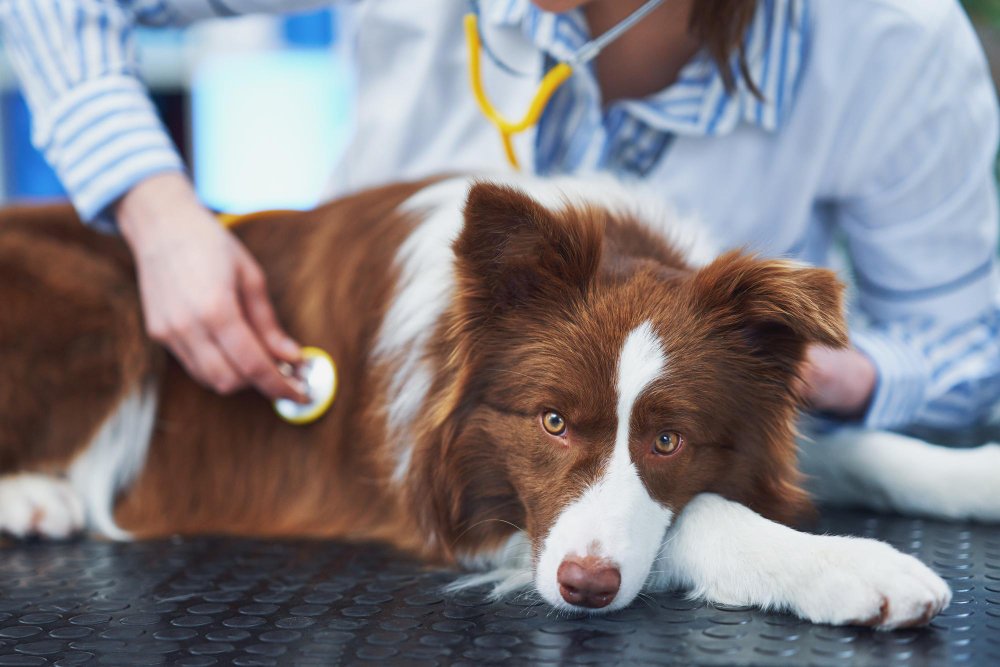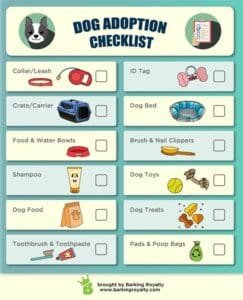Adopting rescue dogs is a heartwarming choice, and now it’s vital to focus on their health and wellness. It’s important to address any concerns to guarantee their well-being and joy. This article explores key aspects of caring for adopted rescue dogs. We provide practical advice and insights to facilitate their adjustment and ensure they thrive as part of your family.
Physical Health of Adopted Rescue Dogs
Initial Health Assessment
When you bring home a rescued dog, it’s crucial to schedule a thorough initial health assessment with a veterinarian. This assessment will help identify any underlying health issues that may require immediate attention. The veterinarian will conduct a physical examination, check for parasites, and perform necessary diagnostic tests. This evaluation will ensure that your new furry friend starts their journey towards a healthy and happy life.
Common Health Issues
Rescue dogs often come from various backgrounds, and as a result, they may have some health issues. Some common health concerns in rescue dogs include dental problems, skin conditions, allergies, and digestive disorders. It’s important to be aware of these possible issues and address them promptly. Regular veterinary check-ups and open communication with your vet will help maintain your dog’s physical well-being.
Vaccinations
Vaccinations play a vital role in protecting your adopted rescue dog from infectious diseases. When you first bring your dog home, they may not have received all the necessary vaccinations. Consult with your veterinarian to create a vaccination schedule tailored to your dog’s needs. Core vaccines, such as those for rabies, distemper, parvovirus, and adenovirus, are typically recommended. Staying up-to-date with vaccinations will help prevent the spread of diseases and ensure your dog’s long-term health.
Parasite Prevention
Parasites, such as fleas, ticks, and heartworms, can pose significant health risks to your rescue dog. It’s crucial to maintain a proactive approach to parasite prevention. Regularly administer flea and tick preventatives, as well as heartworm preventive medication, as recommended by your veterinarian. Additionally, regularly check your dog for any signs of parasites and promptly address any issues. Preventing parasites will keep your furry friend comfortable and reduce the risk of potential health problems.
Nutritional Needs
Proper nutrition is essential for your adopted rescue dog’s overall well-being. Consult with your veterinarian to determine the best diet for your dog based on their age, size, and any specific health conditions. High-quality dog food that meets their nutritional needs will support their immune system, maintain a healthy weight, and promote optimal organ function. Providing a balanced and nutritious diet will contribute to your rescue dog’s physical health and longevity.
Exercise and Weight Management
Regular exercise is important for maintaining your adopted rescue dog’s physical health and weight management. However, the exercise requirements will vary depending on your dog’s age, breed, and overall health. Engage in activities such as daily walks, interactive playtime, and mental stimulation exercises. Consult with your veterinarian to establish an exercise routine that suits your dog’s specific needs. Maintaining a healthy weight will reduce the risk of obesity-related health issues and promote a active, energetic lifestyle.
Mental and Emotional Well-being of Adopted Rescue Dogs
Adjustment Period
Adopting a rescue dog can be a significant adjustment for both you and your new companion. Understand that your dog may experience some initial stress or anxiety as they adapt to their new environment. Give them time and space to acclimate, ensuring a quiet and calm space where they can feel safe. Gradually introduce them to different areas and people in your home, providing reassurance and positive reinforcement. The adjustment period is a crucial time for bonding and building trust.
Trauma and Behavioral Problems
Many rescue dogs have experienced trauma or neglect in their past, which can manifest in various behavioral problems. These issues can include fearfulness, aggression, separation anxiety, and resource guarding. Patience and understanding are key when addressing these challenges. Consider consulting with an animal behaviorist to develop a behavior modification plan tailored to your dog’s specific needs. With time, consistency, and positive reinforcement training, you can help your rescue dog overcome their past trauma and develop positive behaviors.
Providing a Safe Environment
Creating a safe environment is essential for your rescue dog’s mental and emotional well-being. Ensure your home is free of hazards, such as toxic plants, chemicals, and small objects that could be swallowed. Provide a cozy and comfortable space where your dog can retreat when they need some quiet time. Establish clear boundaries and provide consistent routines to help them feel secure. A safe environment will allow your rescue dog to relax and thrive in their new forever home.
Socialization
Socializing your adopted rescue dog is crucial for their mental and emotional well-being and can help prevent behavior problems. Gradually expose them to different people, animals, and environments, always ensuring their safety and comfort. Enroll in obedience classes or seek the guidance of a professional trainer to help your dog develop positive social skills. Positive interactions with others will enhance their confidence and improve their overall quality of life.
Training and Mental Stimulation
Proper training and mental stimulation are essential components of ensuring your rescue dog’s well-being. Basic obedience training, such as teaching commands like sit, stay, and come, will establish a foundation for good behavior. Engage your dog in activities that challenge their mind, such as puzzle toys or scent work. Mental stimulation not only keeps them entertained but also helps prevent behavioral issues that can arise from boredom. Training and mental stimulation will strengthen the bond between you and your rescue dog while providing an outlet for their energy.
Building Trust and Bonding
Building trust and establishing a strong bond with your adopted rescue dog is crucial for their mental and emotional well-being. Be patient, kind, and consistent in your interactions with them. Use positive reinforcement training methods, rewarding good behavior with treats, praise, and affection. Spend quality time together engaging in activities that your dog enjoys, such as walks, playtime, or cuddling. Consistency and understanding will help strengthen the bond between you and your furry friend.
Adopting Special Needs Rescue Dogs
Understanding Special Needs
Adopting a special needs rescue dog requires a deep understanding of their specific challenges. Special needs can range from physical disabilities to behavioral issues, and it’s important to educate yourself about their particular needs. Learn about their condition or challenges and gather information on how to provide the necessary care and support. With the right knowledge and resources, you can give your special needs rescue dog a fulfilling and happy life.
Physical Disabilities
Rescue dogs with physical disabilities may require additional accommodation and care. For example, a dog with mobility issues may benefit from ramps or modified equipment to help them move around comfortably. Consult with your veterinarian or a specialist to determine the best ways to support your dog’s physical needs. Providing a safe and accessible environment will help your special needs rescue dog navigate their new environment with ease.
Behavioral Challenges
Special needs rescue dogs may also face unique behavioral challenges. These challenges can vary widely, from anxiety disorders to aggression issues. Patience, understanding, and consistent training techniques can help address these behavioral challenges. Consider consulting with an animal behaviorist or trainer experienced in working with special needs dogs. They can help develop effective strategies to manage and modify unwanted behaviors in a positive and supportive way.
Providing Additional Support
Special needs rescue dogs may require additional support to thrive. Depending on their specific needs, this may include physical therapy, medication, or a specialized diet. Consult with your veterinarian and follow their recommendations for providing the best care for your special needs dog. Seek out resources and support groups specifically tailored to special needs dogs to connect with others who understand the unique challenges and joys of caring for these amazing animals.
Educating Yourself
Educating yourself about your special needs rescue dog’s specific condition is crucial for their well-being. Research reputable sources, consult with professionals, and seek advice from experienced dog owners who have similar experiences. By understanding your dog’s condition, you will be better equipped to provide the care and support they require. Knowledge is power when it comes to caring for a special needs rescue dog.
Consulting with Professionals
It’s important to consult with professionals who specialize in the care of special needs dogs. Veterinarians, animal behaviourists, and trainers experienced in working with these dogs can provide valuable guidance. They can help develop a customized care plan, offer training techniques tailored to your dog’s needs, and provide ongoing support. Don’t hesitate to reach out for professional assistance when caring for your special needs rescue dog.
Creating a Healthy Routine for Your Adopted Rescue Dog
Establishing a Schedule
Establishing a consistent schedule for your adopted rescue dog can provide structure and security. Dogs thrive on routine, and having a predictable daily schedule helps reduce stress and anxiety. Set regular times for feeding, exercise, playtime, training, and quiet time. Consistency will give your dog a sense of stability and enable them to adjust more easily to their new home.
Balanced Diet and Regular Feeding
A balanced diet is crucial for your adopted rescue dog’s overall health and well-being. Consult with your veterinarian to determine the appropriate diet for your dog based on their age, breed, and any specific dietary needs. Feed your dog high-quality dog food that meets their nutritional requirements, and establish a regular feeding schedule. Avoid overfeeding or free-feeding, as this can lead to obesity and other health issues. Proper nutrition and regular feeding will support your dog’s physical and mental health.
Exercise and Playtime
Exercise and playtime are essential components of your adopted rescue dog’s daily routine. Regular exercise helps maintain their physical health, prevents obesity, and provides mental stimulation. Engage in activities such as daily walks, interactive games, and off-leash play in a secure area. Tailor the intensity and duration of exercise to your dog’s age, breed, and overall health. Providing a variety of activities will keep them physically and mentally engaged.
Grooming and Hygiene
Regular grooming ensures that your adopted rescue dog remains clean and healthy. Brush their coat regularly to prevent matting and remove loose hair. Regularly check their ears, teeth, and nails, and address any issues promptly. Bathe your dog as needed, using a dog-specific shampoo that won’t dry out their skin. Remember to make grooming a positive experience by offering treats and praise. Good grooming habits will contribute to your dog’s overall well-being.
Mental Stimulation and Enrichment
Mental stimulation is just as important as physical exercise for your adopted rescue dog’s well-being. Engage them in activities that challenge their mind, such as puzzle toys, obedience training, or interactive feeding toys. Provide opportunities for sniffing, exploring, and problem-solving. Mental stimulation will prevent boredom, reduce behavior problems, and promote a happy and contented dog.
Bonding Activities
Building a strong bond with your adopted rescue dog is essential for their emotional well-being. Engage in bonding activities that foster trust and strengthen your connection. Spend quality time with your dog through activities such as grooming, cuddling, and games. Consider participating in training classes together, as this will not only enhance the bond between you and your dog but also provide mental stimulation. Nurturing a strong bond will create a happy and harmonious relationship between you and your rescue dog.
Common Health and Wellness Questions for Adopters
What vaccinations are necessary for rescue dogs?
Rescue dogs typically require core vaccinations, including those for rabies, distemper, parvovirus, and adenovirus. However, the specific vaccinations your dog needs may vary based on factors such as age, region, and lifestyle. Consult with your veterinarian to determine a vaccination schedule tailored to your dog’s needs.
How often should I visit the veterinarian?
Regular veterinary check-ups are essential for your adopted rescue dog’s health. In general, annual check-ups are recommended for adult dogs, and more frequent visits may be necessary for puppies, senior dogs, or those with underlying health conditions. Your veterinarian can provide specific guidance on how often your dog should be seen based on their individual needs.
What should I feed my adopted rescue dog?
Feeding your adopted rescue dog a balanced and nutritious diet is crucial for their overall health. Consult with your veterinarian to determine the best diet for your dog based on their age, breed, and any specific health conditions. High-quality dog food that meets their nutritional needs is recommended.
How much exercise does my rescue dog need?
The amount of exercise your rescue dog needs will depend on several factors, including their age, breed, and overall health. In general, most dogs benefit from at least 30 minutes to 1 hour of exercise each day. However, some high-energy breeds may require more. Consult with your veterinarian to determine an exercise routine that suits your dog’s needs.
What signs indicate a health issue in my rescue dog?
It’s important to be vigilant for signs of potential health issues in your rescue dog. Signs to watch out for include changes in appetite, weight loss or gain, vomiting, diarrhea, excessive thirst, lethargy, coughing, difficulty breathing, and changes in behavior. If you notice any unusual symptoms or behaviors, consult with your veterinarian for proper evaluation and guidance.
What can I do to help my rescue dog feel safe and secure?
Creating a safe and secure environment for your rescue dog is crucial for their well-being. Provide a comfortable space for them to retreat to when they need quiet time. Establish consistent routines, provide proper training, and display calm and confident behavior. Positive reinforcement, a predictable environment, and your love and patience will help your rescue dog feel safe and secure.
How can I address behavioral problems in my adopted dog?
Addressing behavioral problems in your adopted dog requires patience, consistency, and positive reinforcement training. Consider consulting with an animal behaviorist or professional trainer experienced in working with rescue dogs. They can help develop a behavior modification plan tailored to your dog’s specific needs.
Can I help my rescue dog overcome past trauma?
With patience, understanding, and appropriate training techniques, you can help your rescue dog overcome past trauma and develop positive behaviors. Consult with professionals experienced in working with traumatized dogs, such as animal behaviourists or trainers. They can provide guidance on how to gradually desensitize your dog to triggers, manage anxiety, and build trust.
What resources are available for adopters of special needs rescue dogs?
Several resources are available for adopters of special needs rescue dogs. Online communities and forums provide a platform for sharing experiences, advice, and support. Books and publications specifically focused on caring for special needs dogs offer valuable knowledge. Consulting with professionals, such as veterinarians and animal behaviorists, can also provide guidance and support.
Are there any breed-specific health concerns I should be aware of?
Certain dog breeds are more prone to specific health concerns. Research the breed of your adopted rescue dog to become familiar with any potential health issues associated with that breed. Talk to your veterinarian about breed-specific concerns and how to best manage them.
Post-Adoption Support and Resources
Utilizing Rescue Organization Assistance
Many rescue organizations offer post-adoption support and resources to assist you in caring for your adopted dog. They can provide guidance, answer questions, and address any concerns you may have. Don’t hesitate to reach out to them for assistance and take advantage of the valuable resources they offer.
Finding a Veterinarian
Finding a trusted veterinarian is crucial for your adopted rescue dog’s ongoing health care. Research local veterinarians, read reviews, and ask for recommendations from fellow dog owners. Schedule an initial appointment to establish a relationship and ensure that the veterinarian is the right fit for your dog’s needs.
Online Communities and Forums
Online communities and forums dedicated to dog owners and rescuers can provide a wealth of knowledge and support. Join groups where you can connect with other adopters, share experiences, and seek advice. Participating in these communities allows you to learn from others and feel supported on your journey as a rescue dog owner.
Training Classes and Workshops
Enrolling in training classes or workshops can be beneficial for both you and your adopted rescue dog. These opportunities provide structured learning environments and can help address specific behavioral concerns. Look for classes that emphasize positive reinforcement training methods and ensure that trainers are experienced in working with rescue dogs.
Books and Publications
Books and publications on dog behavior, training, and health can be valuable resources for adopters. Research well-reviewed and reputable publications that cover topics relevant to your specific needs. These resources offer valuable insights and guidance on providing the best care for your adopted rescue dog.
Consulting with Animal Behaviorists
If you’re facing specific behavioral challenges with your rescue dog, consulting with an animal behaviorist can provide expert guidance. Behaviorists can help evaluate your dog’s behaviors, identify triggers, and develop a customized behavior modification plan. Their expertise and experience will assist you in addressing any issues and promoting a happy and healthy relationship.
Important Rescue Dog Websites and Blogs
There are numerous informative rescue dog websites and blogs available to help you navigate the challenges of caring for an adopted dog. These online resources offer valuable articles, tips, and personal stories from fellow dog owners. Stay informed by regularly visiting these websites and blogs to gain insights and stay up-to-date on the latest information in rescue dog care.
The Importance of Patience and Understanding
Transition Period Challenges
The transition period when bringing home a rescue dog can be challenging for both you and your new furry friend. Understand that your dog may display behavioral issues or exhibit fear and anxiety as they adapt to their new surroundings. Patience and understanding are key during this time. Offer reassurance, establish routine and consistency, and provide a calm and safe environment. With time, love, and patience, your rescue dog will adjust and thrive in their new home.
Staying Positive and Persistent
Caring for a rescue dog can come with its fair share of challenges. It’s important to stay positive and persistent throughout the process. Celebrate small victories, even in the face of setbacks. Continue to provide love, patience, and consistent training efforts. Dogs are incredibly adaptable, and with your unwavering support, they will overcome obstacles and flourish.
Building a Strong Foundation
Building a strong foundation with your adopted rescue dog is essential for a healthy and happy future. Focus on establishing trust, setting boundaries, and providing consistent and positive reinforcement. Spend quality time together engaging in activities that strengthen your bond. A strong foundation built on love, understanding, and mutual respect will create a solid basis for a lifelong companionship.
Celebrating Each Milestone
As you navigate the journey of caring for your adopted rescue dog, remember to celebrate each milestone achieved. Whether it’s overcoming a behavioral issue, mastering a new command, or simply feeling comfortable and secure at home, acknowledge and appreciate your dog’s progress. Celebrating these milestones reinforces positive behavior and motivates you both to continue working towards a brighter future.
Understanding Individual Differences
It’s important to remember that every rescue dog is unique, with their own personality, quirks, and needs. Understand that not all dogs will progress or respond to training in the same way. Tailor your approach to your individual dog and be patient as you navigate their unique journey. Embrace and appreciate the individual differences that make your rescue dog special and celebrate their growth at their own pace.
Building a Happy and Healthy Future Together
Continued Veterinary Care
Regular veterinary care is crucial for your adopted rescue dog’s ongoing health and wellness. Schedule annual check-ups and vaccinations, and follow any recommended preventive measures. Additionally, stay alert for any signs of potential health issues and consult with your veterinarian as needed. By providing consistent veterinary care, you are proactively ensuring the long-term health and well-being of your furry companion.
Understanding Age-Related Changes
As your rescue dog ages, their needs may change. Understanding age-related changes is crucial for providing appropriate care. Older dogs may require a modified diet, additional joint support, and more frequent veterinary check-ups. Stay informed about the specific needs of senior dogs to ensure that you are meeting their unique requirements in every stage of their life.
Preventing Common Health Issues
Prevention is key when it comes to common health issues in dogs. Stay up-to-date with vaccinations, administer parasite preventatives as recommended, and maintain a balanced diet and regular exercise routine. Regular grooming and hygiene practices, combined with a safe environment, will further prevent potential health problems. By being proactive in mitigating health risks, you can provide your adopted rescue dog with a healthier and happier future.
Maintaining Mental and Emotional Well-being
Just as physical health is crucial, maintaining your rescue dog’s mental and emotional well-being is equally important. Continue to provide mental stimulation, enrichment activities, and opportunities for socialization. Support their emotional needs by offering a safe and secure environment, positive reinforcement, and plenty of love and affection. By addressing their mental and emotional well-being, you are promoting a fulfilling and contented life for your dog.
Ongoing Training and Enrichment
Training and enrichment should be an ongoing part of your adopted rescue dog’s life. Continue to reinforce basic commands and introduce new skills as they progress. Engage in activities that challenge their mind and provide opportunities for socialization. Ongoing training and enrichment provide mental stimulation and help prevent boredom and behavior problems.
Prioritizing the Bond with Your Rescue Dog
Above all, prioritize the bond with your rescue dog. Cultivate a strong, trusting relationship through regular quality time, positive reinforcement, and open communication. Recognize that the bond you share is the foundation for their overall well-being. By prioritizing your bond, you are fostering a loving and fulfilling connection that will last a lifetime.
Conclusion
Adopting a rescue dog brings both joy and responsibility. Understanding the physical and mental health needs of your new furry family member is essential for providing them with a happy and healthy future. From the initial health assessment to addressing behavioral challenges and tailoring a healthy routine, there are numerous steps you can take to ensure your adopted rescue dog thrives.
By prioritizing their physical health, providing a safe environment, and staying committed to their emotional well-being, you are creating the foundation for a strong bond and lifelong companionship. Remember to be patient, celebrate milestones, and embrace the individuality of your rescue dog. With love, understanding, and ongoing care, you and your adopted rescue dog can look forward to a bright and fulfilling future together.



